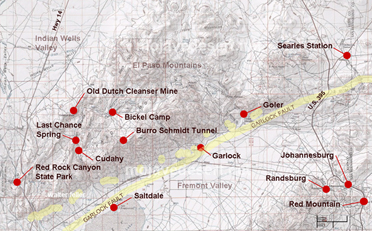Bickel Camp
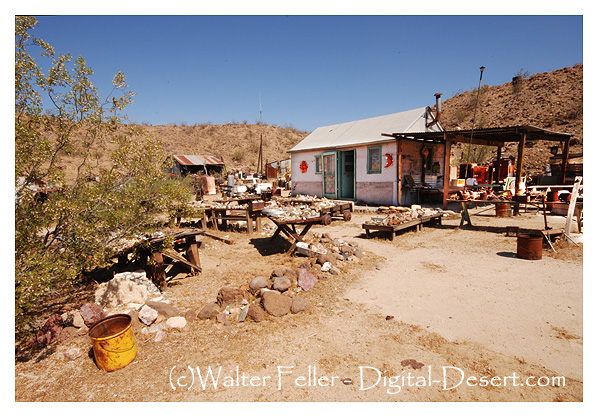
Walt Bickel, a heavy equipment operator, came to the El Paso Mountains as a visitor during the depression and later, after WWII, returned to the area to stay. He found sustainable gold in the area. Not enough to make him rich, but enough to keep him where he could make his home here. Walt was resourceful, learning to live, in part, off the land as did the Indians and earlier inhabitants. Walt was inventive and over the years created his own machinery to help him process placer gold as well as accomplish other chores and tasks he found necessary.
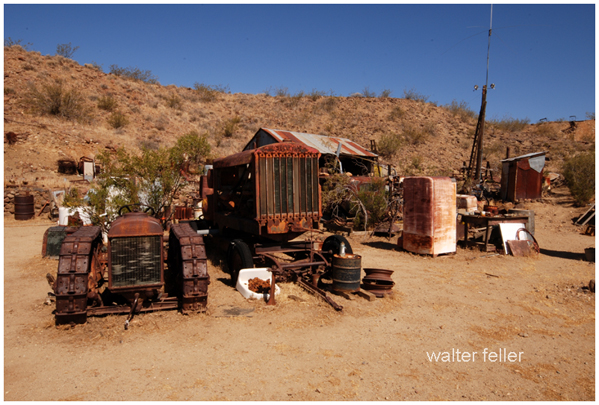
About 1986 the Bureau of Land Management (BLM) aggressively began a campaign to rid the desert of cabins and camps where drug labs may take hold. Bickel Camp came under scrutiny. Walt suffered a stroke just before the inspection and was hospitalized. The BLM determined that there wasn't enough mining activity at the claim to keep the camp from being razed.
Walt's son-in-law, Larry O'Neil, had been helping Walt keep the claim active since the mid-60s. With public opinion on his side he managed to stave off the BLM and protect the camp intact until about 2004, when he went to live with his family. Walt never returned to Bickel Camp. He died in 1996.
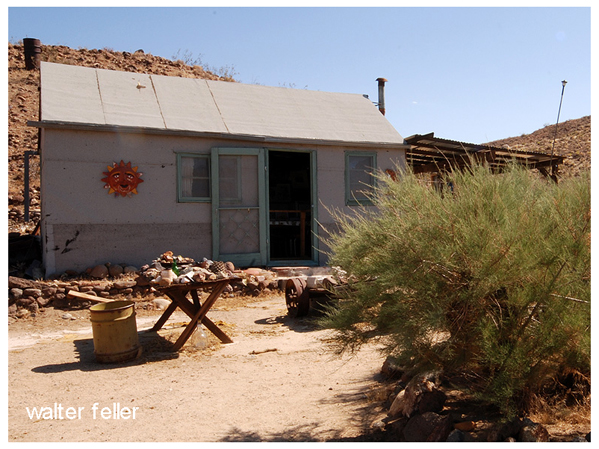
I remember talking with the caretaker while he gave me a tour of the place. I stuck my head in the cabin and "WHEW! -- It smells like an old dead rat in here!" Without any change in the level or tone of his voice he replied, "yeah, I got to get that."
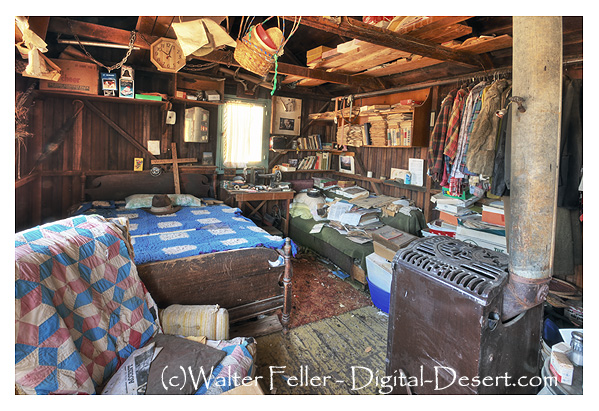
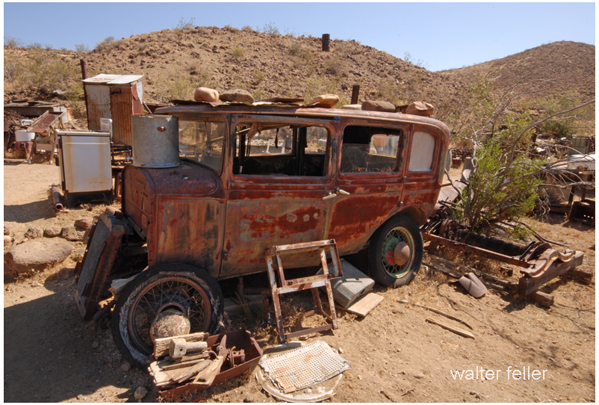
Bickel Camp is a historic site located in the El Paso Mountains within the Mojave Desert in California, USA. The El Paso Mountains are part of the larger Basin and Range Province, known for its diverse landscapes and geological features.
Bickel Camp has historical significance as a mining camp dating back to the late 19th century. The camp was established during the mining boom in the region, which was driven by the discovery of gold, silver, and other minerals. The exact history of Bickel Camp may vary, as mining camps were often transient and dependent on the success of nearby mines.
Mining in the Mojave Desert played a crucial role in the development of the region during the late 1800s and early 1900s. Many small mining camps and towns emerged as prospectors and miners sought their fortunes in the desert landscape. While some camps thrived for a period, others were abandoned when mining operations ceased or resources were depleted.
Visitors to Bickel Camp today may find remnants of the past, such as old mining structures, equipment, and artifacts. It serves as a reminder of the mining history that shaped the Mojave Desert. Exploring these historical sites can provide insights into the challenges and lifestyles of those who once called these remote areas home.
If you plan to visit Bickel Camp or other historic sites in the Mojave Desert, it's important to respect the area's history and environment. Additionally, be aware of any regulations or guidelines in place to preserve these historical sites and ensure your safety during your exploration.
